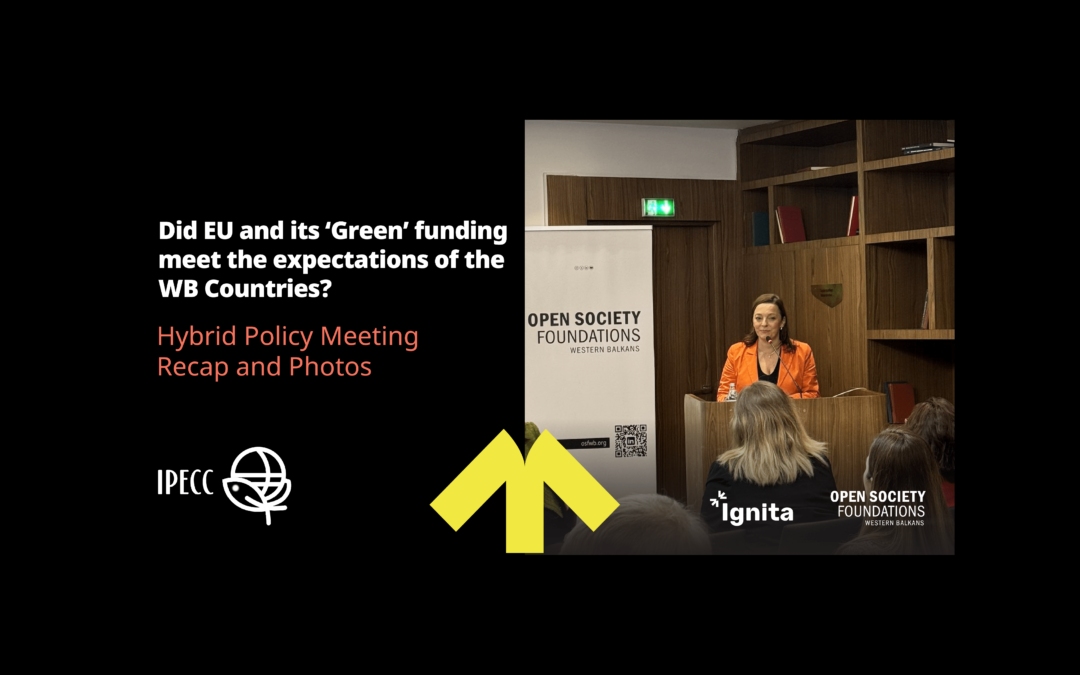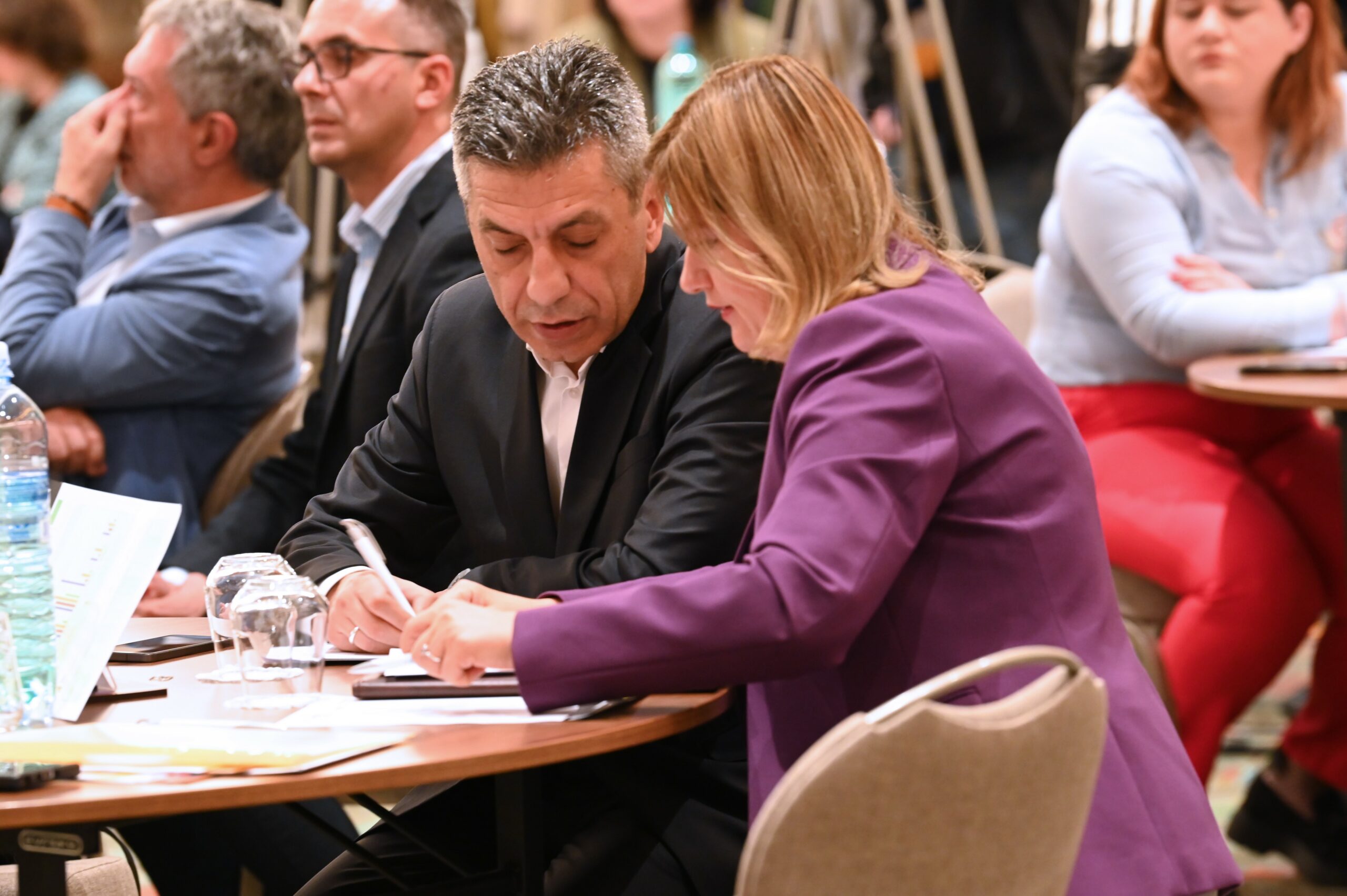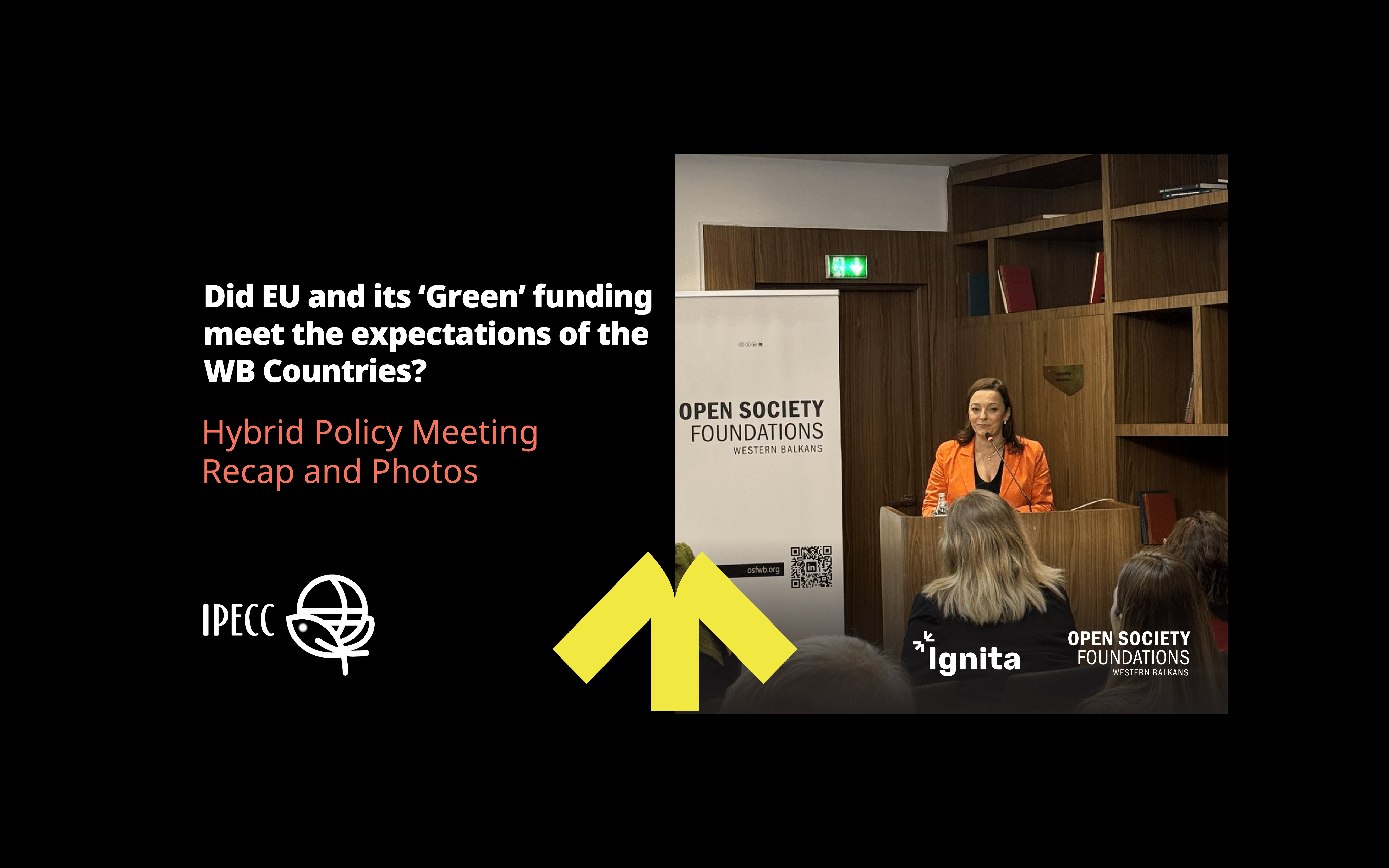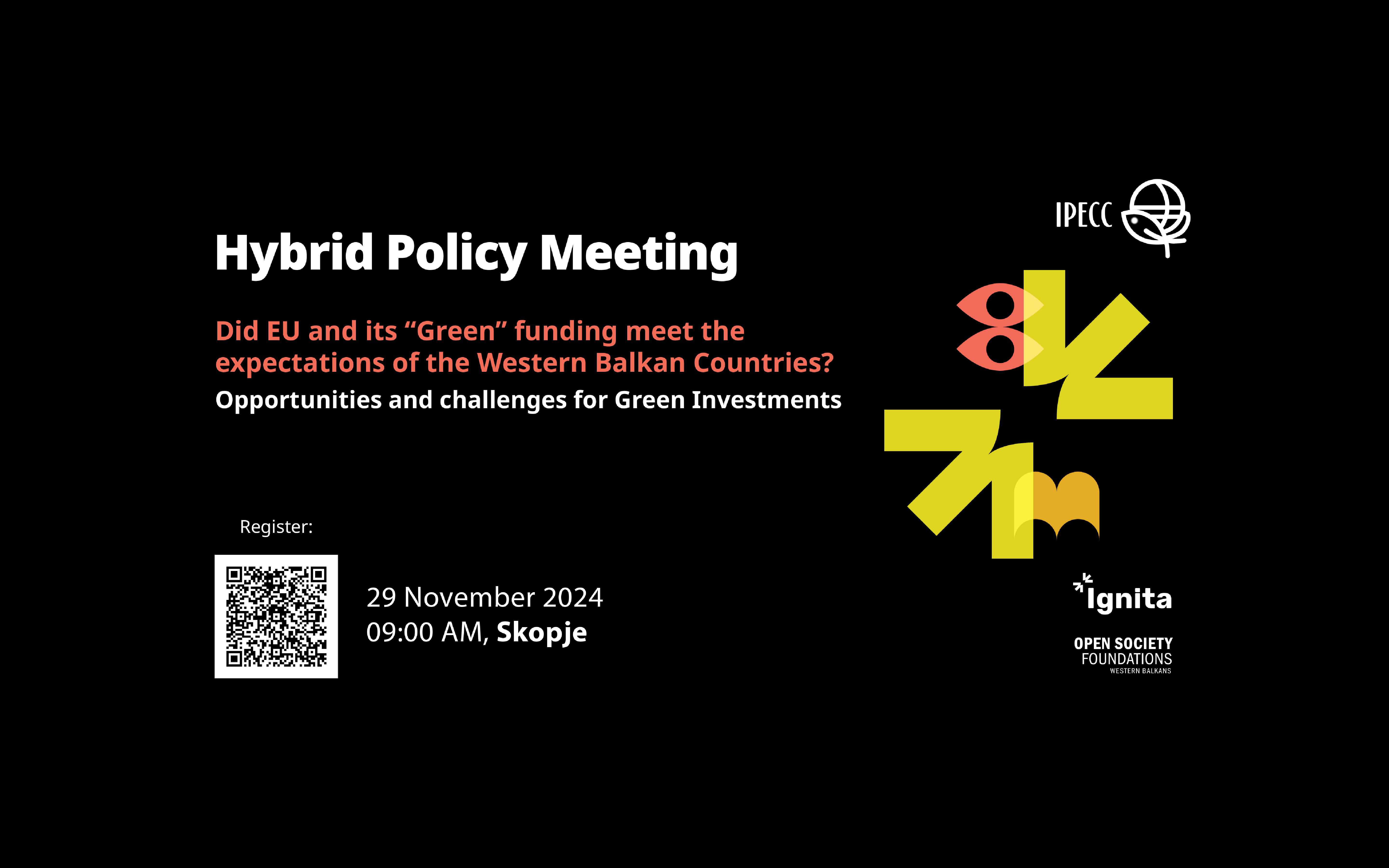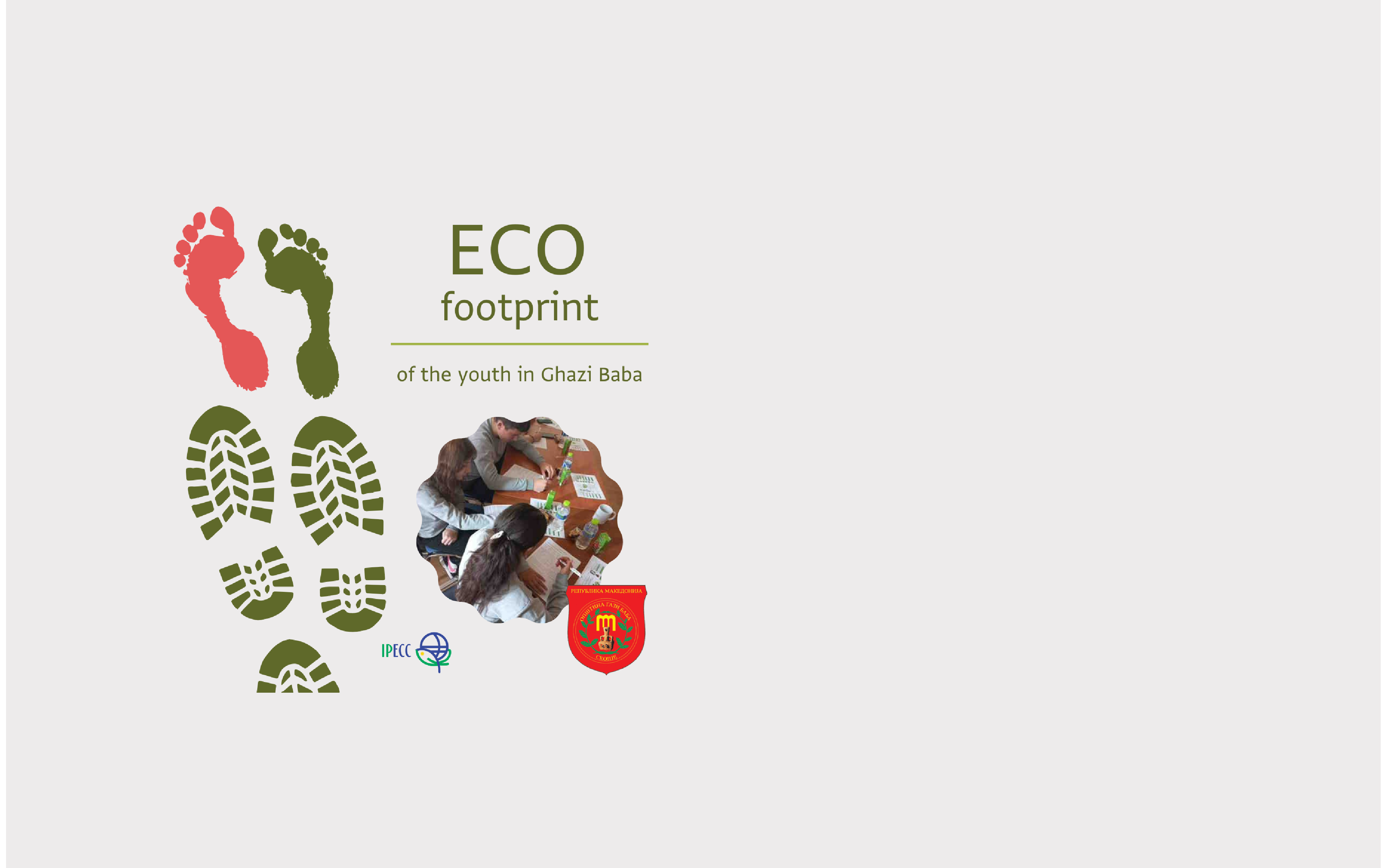On 29 November, IPECC organized the Hybrid Policy Meeting in Skopje “Did EU and its ‘Green’ funding meet the expectations of the WB Countries: Opportunities and challenges for Green Investments”.
The Meeting started with Introduction and Welcoming notes shared by the president of IPECC Ms. Jadranka Ivanova, and the Program Manager at Open Society Foundations – Western Balkans (OSF-WB), Ms. Adrijana Lavchiska, and continued into a debate where prominent experts discussed ways for successful implementation of green investments, identifying the strengths, opportunities, weakness and threats of alignment of the pre-accession assistance (IPA) with the objectives and the operational logic of the EU Cohesion Funds.
In the beginning of the first session, a Policy Paper was presented by the moderator Ms. Radica Koceva, an IPA management expert, with short and medium-term recommendations for advancing the EU IPA and exploring the how much financial and technical support by EC is sufficient for achieving a truly green and sustainable Western Balkans. According to the Policy Paper, North Macedonia is performing well in planning green investments, with a total share of approximately 47% and 45% of overall allocations, including EU contributions. This positions the country among the top three in the WB6, prioritizing green investments when EU IPA funding is involved.
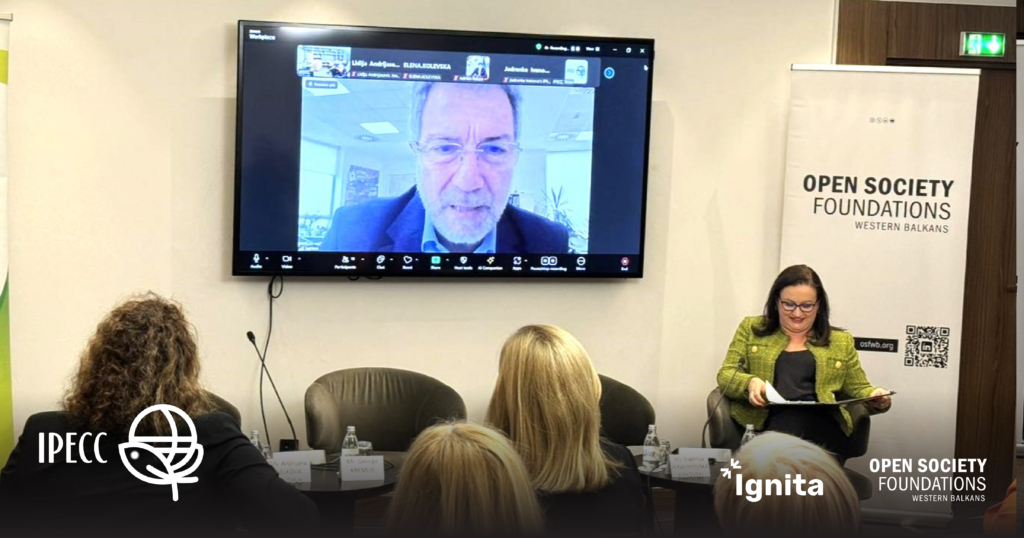
The meeting continued with moderated discussions among panelists representing various institutions from the WB region and EU member states. The first panelist, Mr. Nikola Bertolini, Head of Cooperation in the EU Delegation in Serbia, highlighted the importance of revisiting approved projects to assess their readiness for implementation,. He pointed out that North Macedonia serves as an excellent example of what can be achieved, which is a result of holistic approach: combining infrastructure investment, green reforms, water tariff adjustments, and targeted technical assistance measures.
Ms. Brankica Cmijanovic, the focal point for the Green Agenda for the Western Balkans and Head of the Directorate for Enhancing the Environment from the Ministry of Ecology, Spatial Planning and Urbanism of Montenegro, joined the discussion online. Ms. Cmijanovic highlighted Montenegro’s new financial perspective (2021–2027), which builds on lessons from previous periods. The program focuses on aligning environmental priorities with EU benchmarks for closing Chapter 27 negotiation, supporting projects like establishing Natura 2000 networks, capacity building, and improving administrative capabilities. She noted that the estimated cost for implementing Action plan for closing Chapter 27’s requirements is €483 million, though this figure may increase.
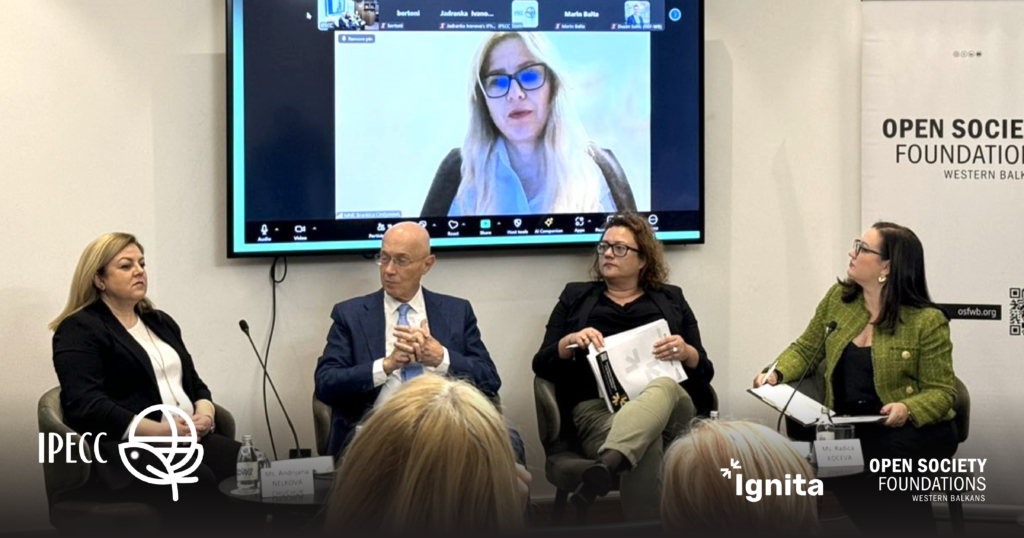
The second session covered the topic on opportunities and challenges for implementing the green investments. Ms. Evgenija Serafimovska-Kirkovski, Head of Sector for Coordination of EU Funds and Other Foreign Assistance, and Head of NIPAC at the Ministry of European Affairs of North Macedonia participated in this session. She stressed that successful projects depend on collaboration between central and local governments, with active political support at the municipal level, particularly in the environmental sector, and encouraging better coordination to address infrastructure priorities and ensure smooth project implementation.
The discussion continued focusing on the dual challenge of transitioning to renewables while maintaining energy security, welcoming Ms. Andrijana Nelkova-Chuchuk, Commissioner at the Energy and Water Services Regulatory Commission of North Macedonia and Head of the Economic Department, as well as Chair of the Energy Regulators Regional Association. She emphasized the critical importance of investments in energy infrastructure, especially the need to accelerate investments into renewable energy, supported by the EU and international financial institutions.
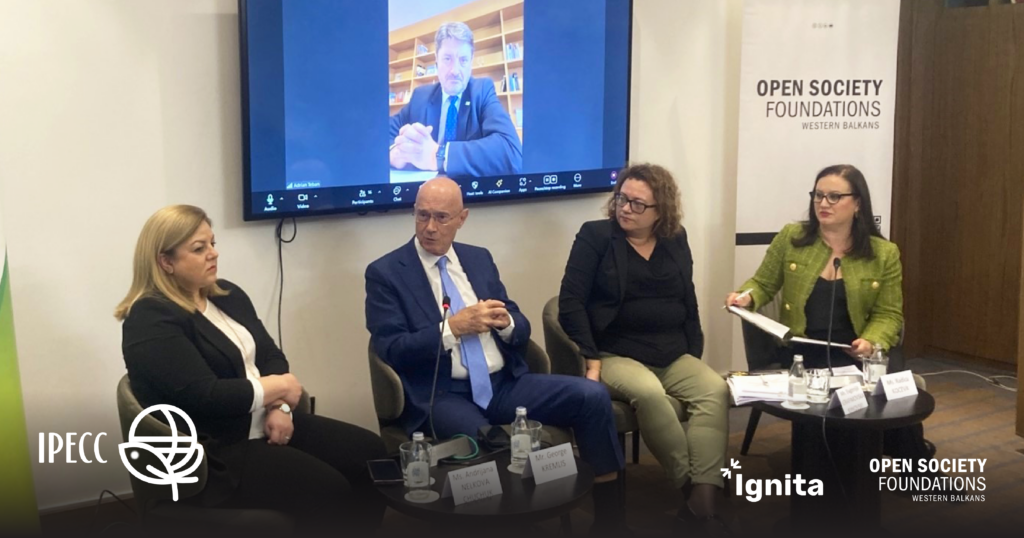
On the third session covering the topic “IPA III as preparation of Cohesion Policy”, Mr. Adrian Teban, Mayor of Cugir City, Alba County in Romania highlighted the importance for local and national governments to work in partnership in order to ensure the successful planning, preparation, and implementation of projects funded by EU Cohesion Funds. These funds he considered as being the key foundation for improving the living conditions of the citizens of Cugir city.
Mr. George Kremlis, member of the Board of Directors at the European Public Law Organisation and Director of the Circular Economy and Climate Institute of Greece advocated for the development of a comprehensive national circular economy plan that need to include different sectors, including agriculture, tourism, and industry, to create sustainable production and consumption patterns. He emphasized that municipalities play a crucial role in these efforts, as they are responsible for managing waste and ensuring proper infrastructure for waste treatment and water management.
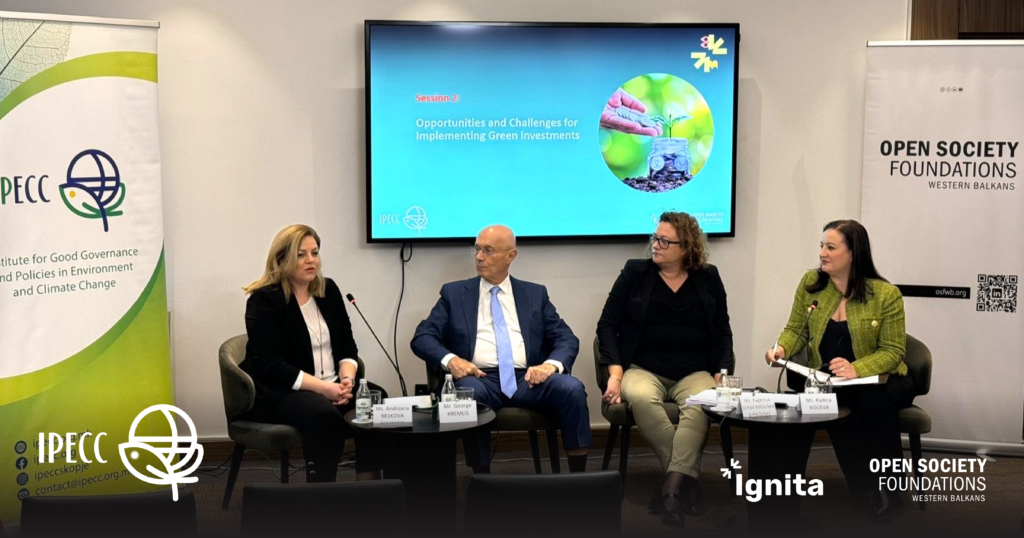
The meeting ended with the main conclusion that green investments can significantly contribute to meeting the EU acquis requirements, and their implementation directly supports the EU integration process of the WB6 countries. Improving national capacities for programming and managing green infrastructure investments is considered a core pillar for successful implementation. WB6 should promote partnership approach at all levels, including coordination and collaboration between local and central institutions, or with civil society organizations in identifying financing priorities, as a crucial preconditions for obtaining ownership in implementing “green infrastructure” projects.
The Hybrid Policy Meeting was organized within the project “Advancing Green Infrastructure in the Western Balkans 6”, which is supported by the Open Society Foundations Western Balkans – OSF–WB, in the framework of IGNITA initiative.

